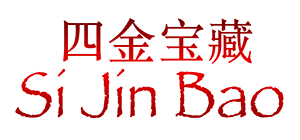Tao Hongjing: Grand Councilor of the Mountains
陶弘景 Tao Hongjing: Grand Councilor of the Mountains
陶弘景 Tao Hongjing was born near the southern imperial capital of Jiankang (modern day Nanjing) in the year 456 and lived during the Northern and Southern Dynasties of China (420 – 589).
陶弘景 Tao Hongjing was an extraordinary human being who excelled in everything he set his mind to. He was revered by his contemporaries and is still remembered today as a prolific poet, musician, philosopher, calligrapher, alchemist, herbologist, astrologist, and Daoist.
陶弘景 Tao Hongjing was born into a family of gentry officials with a long history of service to the imperial courts since the fall of the Han dynasty (202 B.C. – 220 A.D.).
Both his father and paternal grandfather were famed scholars, calligraphers and herbologists. As for his mother and maternal grandfather, they were both devoted and well-versed Buddhists.
The Hongjing family had ties to some of the most famed Daoists in China, including the legendary scholar, physician and alchemist Ge Hong.
陶弘景 Tao Hongjing was an exceptional child. He completed several commentaries on Confucian classics at an early age. Tao studied 神仙傳 Shenxian Zhuan, or Biographies of the Immortals day and night while mastering its ideas of nourishing life when he was just 10 years old.
By his early twenties he achieved success in working as a public official, quickly earning himself a favorable reputation at the imperial court. He was soon appointed “reader in attendance” to Imperial Princes which was a highly coveted position at the time.
His exemplary intellect and scholastic accomplishments earned him deep respect and gave him freedom to enter elite social circles and gatherings dedicated to philosophy and literature.
Yet worldly matters never interested Tao much. Back when he read 神仙傳Shenxian Zhuan, or Biographies of the Immortals at 10 years old, he became inspired to become a hermit. Starting from that point in his life he always aspired to become a recluse and lead a scholarly life in seclusion.
陶弘景 Tao Hongjing & 茅山 Mount Mao Shan
After his mother’s passing in the year 484, 陶弘景 Tao Hongjing resigned all of his posts and became a disciple of a Daoist Master Sun Youyue. In the year 492 at the age of 36 years old, Tao at last fully renounced secular life and devoted himself to studying Daoism. He withdrew to the mountain 茅山 Mao Shan which is considered a portal to the Daoist world by many.
陶弘景 Tao Hongjing maintained both the respect and support offered to him by the Imperial house even after becoming a hermit. What is more, he exerted great influence on the Emperor himself who often visited mount 茅山 Mao Shan to consult 陶弘景 Tao Hongjing on important matters of state.
Utilizing the sponsorship and support provided by the Emperor, 陶弘景 Tao Hongjing was able to build the 華陽館 Huayang Guan, or Hermitage of Flourishing Yang on 茅山 Mao Shan mountain where people received spiritual guidance.
陶弘景 Tao Hongjing became quickly known as the Grand Councilor of the Mountains.
陶弘景 Tao Hongjing and his disciples did not waste any time and began reconstructing the Shang Qing, or Supreme Clarity scriptural corpus right away. They authenticated and edited manuscripts, and also wrote as well as extended the commentaries on them. Some of their major projects were the compilation of two literary compendiums: 真誥 Zhen Gao, or Declarations of the Perfected and Deng Zhen Yin Jue, or Secret Instructions for Ascent to Perfection. 真誥 Zhen Gao for example contained some details of the concealed geography of the 茅山 Mao Shan mountain and poetry which gained popularity during the Tang Dynasty (618 – 907).
The Elixir of Immortality
In the early 500’s, 梁武帝 Emperor Wu of Liang commissioned 陶弘景 Tao Hongjing to perform alchemical experiments and develop an elixir of immortality. Master Hongjing exerted a great amount of time and energy while attempting to find a viable formula. In the end, however, he was unable to reach his goal. His detailed notes taken during research and experimentation are considered to be some of the earliest records of alchemical experimentation in China in existence and are still widely referenced today.
The alchemical experiments and research into proper eating and living practices invigorated his old passion for herbology. He felt inspired to dedicate a part of his time and energy to further research, authentication, editing and rearrangement of the already existing information on herbology.
陶弘景 Tao Hongjing began with one of the original Chinese works, the 神农本草经 Shen Nong Ben Cao Jing, or Classic of the Materia Medica traditionally attributed to 神农 Shen Nong, or ‘Divine Farmer’, who is believed to have introduced ancient Chinese herbal medicine. He reorganized, expanded and annotated the material in an innovative manner.
Classic of the Materia Medica originally listed 365 herbs. 陶弘景 Tao Hongjing doubled the number of herbal entries using other medical classics. He then arranged all of the listed herbs into several categories: plants, trees, minerals, insects, animals, fruits, vegetables and grains: which are still in use today. He also categorized all of the herbs into three classes: upper class herbs promoted longevity, middle class herbs prevented illness and lower class herbs treated symptoms.
In addition to this legendary work, 陶弘景 Tao Hongjing authored other texts focused on herbology. Some of them include: 陶隱居本草 Tao Yinju Bencao, or Hermit Tao’s Herbal Medicine, 藥總訣 Yao Zongjue, or General Medicinal Formulas, and 養生延命錄 Yangsheng Yanming Lu, or Extracts on Nourishing Spiritual Nature and Prolonging Bodily Life.
陶弘景 Tao Hongjing's Legacy
陶弘景Tao Hongjing was a Daoist priest, however, thanks to his mother and maternal grandfather he was fluent in Buddhism as well. As a result, he never stopped befriending Buddhist priests throughout his lifetime and participated in the ongoing conversation about Buddhist nature and significance.
陶弘景 Tao Hongjing’s talents, skills, passions and contributions were so amazingly versatile that he is often regarded as the Chinese counterpart of Leonardo da Vinci.
